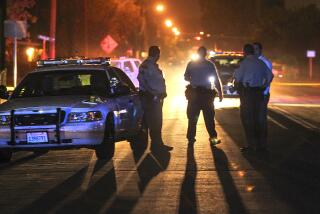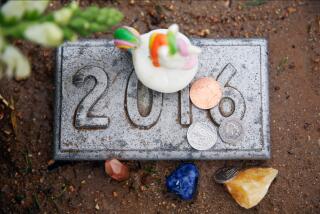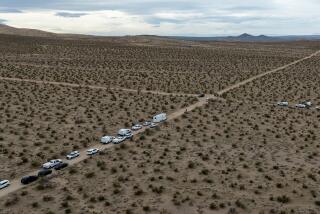Newsletter: When body parts donation complicates a death investigation
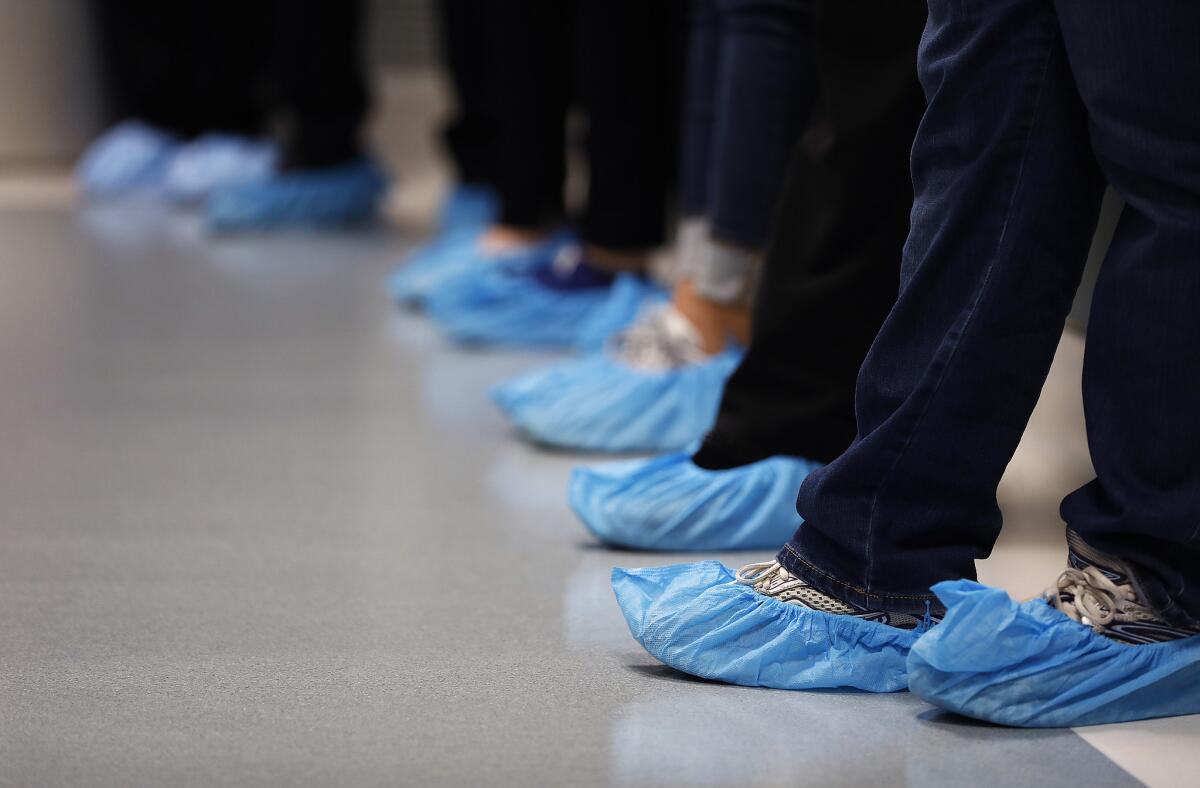
Good morning, and welcome to the Essential California newsletter. It’s Tuesday, Oct. 15, and I’m writing from Los Angeles.
Get the Essential California newsletter »
Companies that harvest human organs, bones and other parts have worked their way into government morgues across the country to gain access to more bodies. In some cases, procurement teams are taking body parts before coroners are able to conduct an autopsy, even in the midst of sensitive investigations such as possible homicides. The procurement companies say there has never been a case in which a death investigation has been harmed by the procurement of body parts.
But my colleague investigative reporter Melody Petersen published a blockbuster investigation that shows how companies that harvest body parts upend death investigations. Her investigation found more than two dozen cases where investigations were complicated or upended by procurement in just two Southern California morgues.
[Read Part 1 of the investigation: “In the rush to harvest body parts, death investigations have been upended” in the Los Angeles Times]
[Read Part 2 of the investigation: “How organ and tissue donation companies worked their way into the county morgue” in the Los Angeles Times]
I spoke to Melody about what’s happening here, and how this broken system came to be. Here’s what she told me.
When most people check that little box that says “donor,” it never occurs to them that that decision might someday mean that it’s more complicated for a coroner to investigate their cause of death because of how their body is harvested. What’s going on here?
Well, that’s not disclosed at all to you or your family. There’s a lot of money to be made in body parts like skin and bone and [these companies] wanted access to more bodies. So, they got laws passed across the country that said the coroner had to cooperate with them to maximize the number of donated body parts. That was about a decade ago that those laws passed. This all happened with almost no public debate and very little public notice.
What are the larger political forces at play? How were they able to get those laws passed?
The companies are very powerful lobbyists because they say their mission is to increase the number of organs available for people on the transplant waiting list, which is thousands of Americans. So state legislators were motivated to pass these laws, thinking it would help those people on the waiting list.
In reality, the number of donated organs has gone up a little bit, but it was the amount of bone, skin and tissue donated that went up much more.
I was really shocked by the role these body parts are playing in the industrial biotech market, where as you note, a half-teaspoon of ground-up human skin can be priced at hundreds of dollars. Does anyone who consents to being an organ donor consent to have their body parts potentially sold for profit? How is that legal?
Yes. When you sign up to be a donor, you might be signing up not just to give your organs but all your parts.
But in California, we do have options. The sign-up form has a section where you can choose which parts you want to give. If you only want to donate organs you can do that. You have to check off which parts you don’t want to give, otherwise you’re giving everything.
This process has been detrimental to some coroner’s offices. Your story found dozens of death investigations that were complicated or upended. Why are coroners consenting to this? Do they have a choice?
Here in California, the law made it very hard for them to say no. In some other states, the coroners are saying they don’t have a choice — they have to allow it.
Many death investigations are extraordinarily complex to begin with, and the donation of parts can make it even harder to determine the cause of death.
[See also: “Worried about how your body parts will be used? Here’s what you can do” in the Los Angeles Times]
And now, here’s what’s happening across California:
TOP STORIES
This city in Idaho is why L.A. can’t legally clear its streets of homeless encampments: The difference between homelessness in Los Angeles and homelessness in Boise is stark — as in orders of magnitude stark. There is no skid row here, no Tenderloin like San Francisco’s, no American River Parkway as in Sacramento. Yet, it is this mid-sized city with its relatively manageable homeless population that is setting the enforcement standards for its much bigger counterparts in the West.
Boise Mayor David Bieter is attempting to challenge a landmark federal court ruling that prohibits cities from ticketing or arresting homeless people for sleeping or camping on public property if there are no shelter beds available as an alternative. The city and county of Los Angeles, along with several local governments in California and elsewhere, have filed court documents supporting Bieter’s bid. Los Angeles Times
What will the next heavy winds bring? The massive power shutdown in Northern California last week is likely to be repeated because PG&E has financial incentives to stop electricity during weather emergencies and reinforcing its grids will take years, experts say. Los Angeles Times
L.A. STORIES
Here’s L.A. Taco’s Día de Los Muertos guide, with events mapped. L.A. Taco
He’s the self-appointed ambassador for the allegedly wronged men of the #MeToo movement. Alki David, an “eccentric billionaire” Hologram executive, has been sued by multiple women accusing him of sexual harassment. Los Angeles Times
“Off Menu,” a new food show from the L.A. Times created and hosted by food columnist Lucas Kwan Peterson, is here! Check out the first episode, where Lucas gets a lesson in homestyle Southern Thai cooking from Jazz Singsanong, owner of Jitlada in Thai Town and unofficial civic treasure. (And smash that subscribe button on our YouTube food channel while you’re at it.) Los Angeles Times
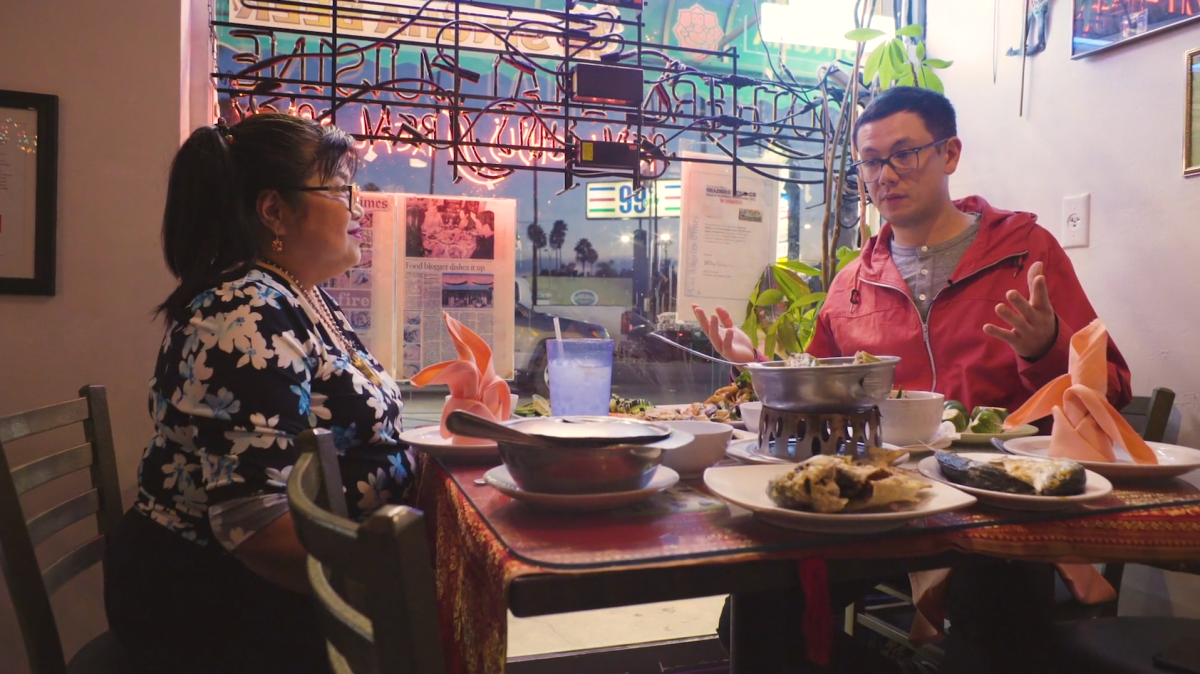
How boy band BTS inspired a school in South L.A. to teach Korean culture. The middle school in question is more than 90% Hispanic, with very few Asian students, but it will reportedly be the first in the country offer a Korean American Culture and Society course, thanks to a teacher who wanted to tap into the students’ fandom over BTS and K-pop. Orange County Register
Writer Kate Braverman has died at 70. Her poetry and prose captured a dark Los Angeles, with an oscillating love and loathing for the city that raised her. Los Angeles Times
Uber has warned Los Angeles International Airport officials that travelers could face traffic jams and long waits for rides when a new pickup system for Uber and Lyft begins later this month. Los Angeles Times
Your support helps us deliver the news that matters most. Subscribe to the Los Angeles Times.
POLITICS AND GOVERNMENT
Gov. Gavin Newsom urged PG&E to provide $100 rebates to residential customers affected by last week’s unprecedented power shut-offs, asserting that the company’s communications failures “put lives at risk.” Los Angeles Times
The city of Eureka has five candidates for city manager, and none of them is a woman. At least a few residents expressed frustrations about this at a candidate meet-and-greet last week. Eureka Times-Standard
California students, their parents and educators woke up Monday to a new law that will dramatically impact their morning routines. So, will later school start times mean more sleep or more hassles for California? Los Angeles Times
CRIME AND COURTS
A statue of Christopher Columbus in San Francisco was defaced with red paint and graffiti over the weekend, just ahead of Monday’s federal holiday celebrating the 15th century explorer. Los Angeles Times
HEALTH AND THE ENVIRONMENT
A magnitude 4.5 earthquake was felt in the San Francisco Bay Area at 10:33 p.m. on Monday, with the epicenter in the Walnut Creek and Pleasant Hill areas. Moderate shaking was felt in the Pleasant Hill, Walnut Creek and Concord areas, while weak shaking was felt in San Francisco, Oakland and San Jose. Los Angeles Times
Lithium will fuel the clean energy boom. This geothermal power company says it can make California’s Salton Sea the first major source of U.S. lithium production. Los Angeles Times
Nearly 300 drinking water wells and other water sources in California have traces of toxic chemicals linked to cancer, new state testing has found. Los Angeles Times
CALIFORNIA CULTURE
Luxury resort beach bathrooms versus a Chumash burial site: Chumash tribal members don’t want the ultra-luxe Bacara resort in Santa Barbara to move its beach house bathrooms — they say it would insult a historic burial site. Santa Barbara Independent
The Festival Industrial Complex: How food festivals hurt the chefs they’re meant to help. Los Angeles Times
What to read in honor of Indigenous Peoples Day: Here are 10 books recommended by the bookstore at Tia Chuchas Centro Cultural in Sylmar. Pasadena Star-News
In 1968, these San Francisco students went on strike to overturn the Eurocentric curriculum they were being taught. Hyperallergic
In rural Anza, marijuana is seen as a scourge. But could it also be a savior for the Riverside County community? Riverside Press-Enterprise
Tulare County walnut growers, bombarded with tariffs, remain hopeful during harvest. Visalia Times-Delta
The fourth annual Stockton Arts Week is in full swing, and here are some highlights to check out if you’re in the area. Stockton Record
“Nothing in my life is secure”: Three DACA recipients at Sacramento State share some of their experiences with the school paper. The State Hornet
In an era when the mega-rich are grabbing flashy headlines with enormous donations to higher education, Cerritos College is celebrating its largest-ever gift: A band saw, a drill press and $2.3 million. “Two million dollars to Caltech is just another number in a very large endowment,” the college’s president said. “Two million dollars for us is transformative. You can actually see the difference … it helps students who can’t pay the rent the next month to graduate.” Los Angeles Times
CALIFORNIA ALMANAC
Los Angeles: sunny, 83. San Diego: sunny, 77. San Francisco: mostly sunny, 66. San Jose: sunny, 76. Sacramento: sunny, 81. More weather is here.
AND FINALLY
Today’s California memory comes from Larry Hoffman:
“As a child in the San Fernando Valley, I loved riding my bike during the summer with my friends, and traveling across the Valley always looking for fruit trees on lawns and fields. I drew maps of where the fruit trees were and a date for the ripening of the fruit and used the map in helping me decide my weekly route. Riding into Northridge from North Hollywood was my favorite ride with apricots, peaches and plums and small farms growing berries and vegetables in the open fields. I would sometimes come home with a sore belly, and I always came home with a full stomach.”
If you have a memory or story about the Golden State, share it with us. (Please keep your story to 100 words.)
Please let us know what we can do to make this newsletter more useful to you. Send comments, complaints, ideas and unrelated book recommendations to Julia Wick. Follow her on Twitter @Sherlyholmes.
More to Read
Start your day right
Sign up for Essential California for news, features and recommendations from the L.A. Times and beyond in your inbox six days a week.
You may occasionally receive promotional content from the Los Angeles Times.
